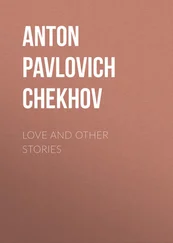In the interview section, we derided the rehearsed eloquence of the other contestants and quieted when Galina approached the microphone. The host introduced her and consulted a set of green index cards with a long downward stare that drew out the suspense of the moment and made him appear illiterate. “What does the Miss Siberia Beauty Pageant mean to you?” he finally asked.
With a demure smile Galina turned to the nearest camera. “It means a great deal to represent my hometown on a national stage. I am pleased this pageant is bringing attention to the rich cultural heritage of Siberia. For centuries European Russia has used Siberia as a prison for its criminals and exiles. But we are not criminals and we are not prisoners. We are the citizens of a new country and soon the world will recognize that Siberians not only mine the fuel of the Russian Federation, we are the fuel of the Russian Federation.”
The host flashed one of those peculiar frowns that express both approval and surprise. “And what will you do if you are chosen as Miss Siberia?” he asked.
“I will become famous, of course,” Galina said and winked at the camera. For the two-second pause before the audience cheered and the backing band trumpeted, Galina didn’t need a tiara because she had already crowned herself with that wink.
During the talent portion a withered cornstalk from Vladivostok played Rachmaninoff on a balalaika. Fake nails, breasts, eyelashes, and hair extensions alchemized into the real woman from Barnaul who donned a blindfold and solved a Rubik’s Cube. Who were these bombshell savants? The judges were as surprised as we were. When it was announced that Galina would dance Odette’s solo from Swan Lake , we fell silent. What was she trying to prove by selecting the solo from the first ballet her grandmother had performed on the canteen stage sixty years earlier? Why would Galina, our icon of the new Russia, dance from the USSR’s most widely performed ballet? Photoflashes detonated. White tulle swathed her waist. Her head rested between the parentheses of her raised arms, and rising to her toes, noosed in spotlight, she began.
The cellos trilled. Galina stood en pointe, her waist ringed in a white tutu. She lifted her left leg and traced a parabola in the air with her slipper. Her foot landed just as the violins came in, and oh, how we wished our grandmothers had been alive to witness it. For the two and a half minutes she danced, all the city was silent. Seventeen hundred kilometers from the auditorium and we’d never felt closer to our friend. The attendees from Moscow, Petersburg, and Volgograd only saw the woman flapping her arms onstage, but we saw her in her first ballet auditions when the instructor had given a spirit-sapping sigh. We saw her jaw slacken when we told her stories about her grandmother. We saw her fly through the air when she tripped on her shoelace in third-year arithmetic. But we couldn’t blame any shoelace for the fall Galina took in the final fifteen seconds of her routine. It could only be attributed to a series of formidable grand jetés , the polished stage floor, excessive ambition, and insufficient talent. She leapt from the ball of her right foot but landed on the side of her left. The microphones didn’t pick up the fracturing of her medial malleolus above the orchestral din. We only heard the host’s exclamation, a short scream from Galina as she slammed to the floor, and the stubborn melody of a viola player who continued playing to the end of the page, long after his colleagues fell silent. When Galina pushed herself upright, her face was red. Her tutu spread around her on the stage, filling every centimeter of spotlight, and she looked at the camera with a beseeching whimper of defeat so familiar, so intimate we could feel it in our own throats.
Galina received medical treatment while the other contestants demonstrated their talent through song, acrobatics, and party tricks. We slouched, too bereft to do Galina the honor of ridiculing her rivals. She was pushed onstage in a wheelchair for the crowning ceremony, her ankle packed in ice. We couldn’t not watch her not win. We’d come too far. The night had given us something to talk about for years. Already we’d begun criticizing her poor preparation, her arrogance, her hubris for not consulting us when we could’ve warned her that she was destined to fail. The host received an envelope from the judging panel and opened it onstage. He frowned. It wasn’t one of his suspenseful pauses; he was reading and rereading the name in genuine disbelief. Though we would later learn that the oligarch had been one of the chief financiers of the contest, and that the winner’s name had been written on the stationery and sealed in the envelope three days before the pageant began, it wouldn’t dilute the memory of the joy that rushed through us when the host smirked at the camera and said, “It gives me great pleasure to announce that the Miss Siberia tiara goes to none other than Galina Ivanova.” We clapped and we shrieked. We stomped on the floorboards and danced in the halls. We’d known she could do it. We’d never had a moment of doubt. Photoflashes sparkled back from Galina’s wet eyes. She couldn’t climb to the podium so stagehands lifted her and the host set a golden tiara on her head. Within a month the gold leaf would chip to reveal alloyed nickel underneath.
FAME followed. Galina received roles in film and television shows, and for a number of years we only saw her on cinema screens and in grainy tabloid papers. Kolya returned from Chechnya to a city where he was only employable as a hoodlum, and soon we forgot there had been a time in Galina’s life when she wasn’t the oligarch’s woman. She lived in Petersburg and Moscow in the penthouses of Voronov’s luxury hotels. Even in their most scintillating speculations, the newspapers were always respectful of the oligarch. A generation or two ago, men like him would have sent troublesome writers to Siberian labor camps. Now, they simply had troublesome writers shot.
We had little time for celebration. Our fathers died of lung disease and our brothers and husbands replaced them. They returned from the mines glinting as our fathers had, but quiet, joyless, hollowed by existential worry. They’d only begun working when they began losing their jobs. The benefits the combine had once provided its employees had gone the way of the sickle and hammer. No more sanatoriums or hospital beds. The rubles received for combine shares had long been spent and we no longer had legal claim to the mines our grandparents had died excavating. And it stung, this hard slap of realization, when we understood that our mothers had been right: Teenagers yearn for freedom; adults yearn for security. Our country had been powerful. The world had feared us. A paternal state had provided. Now what did we have? Epidemics and addictions. As teenagers we had seen ourselves pitted against the strength of the state, but it was this very strength that had propped us here at the top of the earth.
And yet there was joy. We had children. They came into the world screaming, pale, and slick with placenta. They came coughing and sputtering and we received them into our arms and taught them to laugh. We applauded first birthdays and first steps. Our children forever changed our relationships with our mothers. Pity replaced the mild contempt with which we had previously regarded them, and we loved them as we never had before, as we could only love ourselves, because despite our best intentions we had become them.
When Galina’s first film came to the cinema, we went with our children and their grandmothers. Galina seemed even more incredible when stretched two stories tall. She played a heroine trapped in a web of mystery and intrigue. She was held hostage by the CIA and escaped. She used her mental and physical agility to her advantage. She acted with cool cunning and even in moments of great danger she summoned withering one-liners. Critics lambasted Deceit Web as implausible, but we didn’t care. Our former classmate, our best friend, starred in a feature film, and here we were, watching it.
Читать дальше












